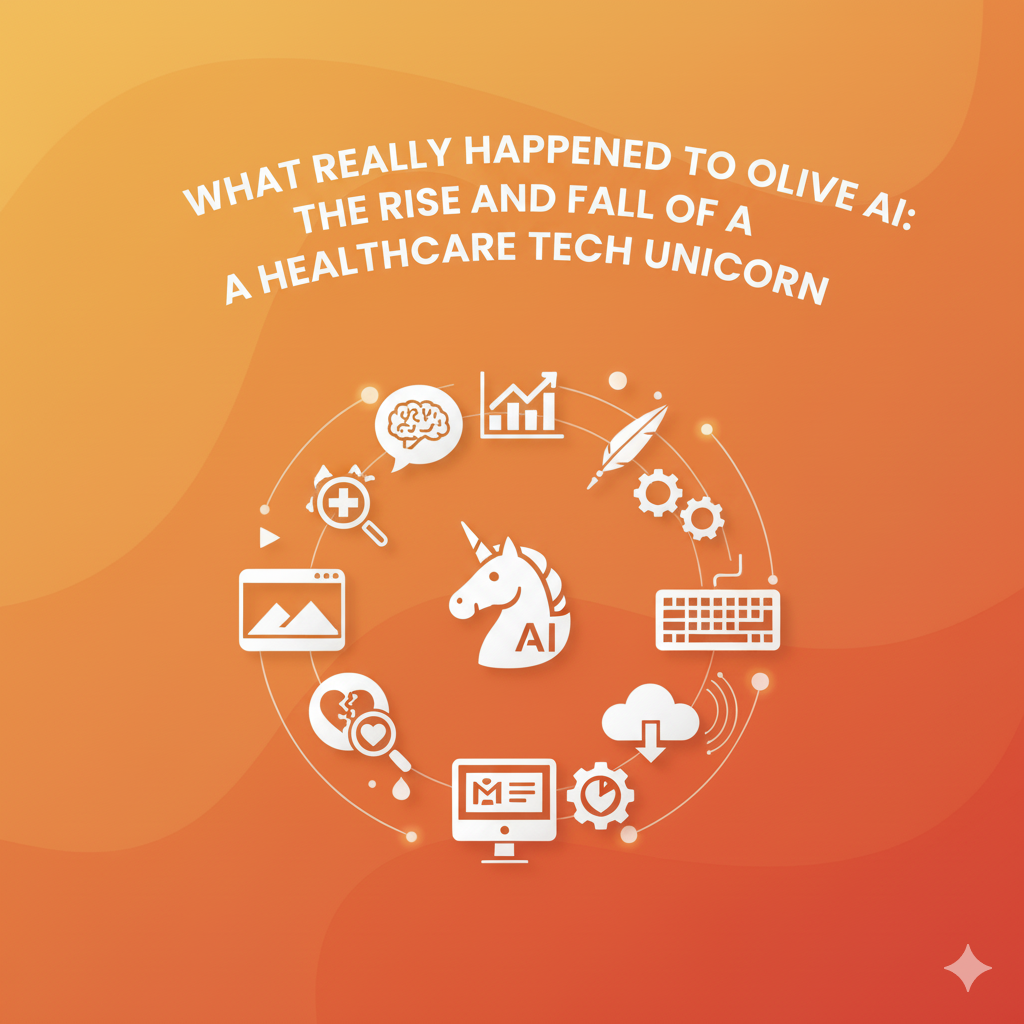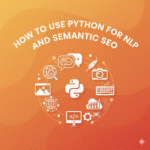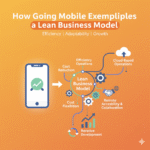Short Answer (for readers who just want the summary)
Olive AI was once one of the most promising health-tech startups in the US, valued at around $4 billion. It aimed to revolutionize hospital operations with AI automation. But after years of aggressive expansion, product overpromises, and operational struggles, the company started selling off its business units in 2023 and began winding down operations.
The Ambitious Beginning
Back in 2012, Olive AI was founded with a bold vision to use artificial intelligence to automate repetitive and time-consuming administrative work in healthcare. The idea was simple yet powerful: hospitals waste massive time and money on manual data entry, billing, claims processing, and prior authorization.
Olive promised to handle all that through smart automation a digital worker that never sleeps. The company’s mission quickly resonated with healthcare organizations under pressure to cut costs and improve efficiency.
With growing investor confidence, Olive raised hundreds of millions of dollars. By 2020–2021, it was one of the hottest startups in healthcare tech, working with hundreds of hospitals and boasting partnerships across the country. Its valuation soared to nearly $4 billion.
At that point, Olive AI looked unstoppable. It had strong branding, a futuristic story, and seemed to be riding the global AI wave perfectly.
When Growth Outpaced Reality
But behind the scenes, cracks were beginning to show. Olive’s biggest challenge wasn’t the idea itself it was execution.
Healthcare automation is a complex field. Every hospital has different systems, policies, and software. What works in one system often doesn’t work in another. Olive promised a “plug-and-play” AI solution that could integrate easily into hospital workflows. But in reality, the implementation was much harder and required human intervention more often than expected.
The company grew quickly — new offices, hundreds of hires, expanding into multiple product lines — but it never fully stabilized its core offering. Instead of focusing on making one strong automation product, it started launching several tools at once: analytics, workflow automation, and operational dashboards.
That aggressive scaling, combined with inconsistent client outcomes, began to hurt the company’s reputation. Some hospitals reported that results didn’t match the savings or efficiency Olive had promised. The technology often needed human backup to complete “AI-powered” tasks, making the automation less effective than advertised.
Internally, this created pressure. Growth targets were huge, expectations even bigger, and the technology was struggling to deliver at scale.
The Turning Point
By mid-2022, Olive started to pull back. Layoffs began as the company tried to streamline operations and “refocus on core priorities.” It was a typical sign that the startup had grown faster than its foundation could handle.
The leadership acknowledged some missteps: expanding too fast, taking on too many projects at once, and not having enough focus on consistent customer results.
As the global funding environment tightened, investors became more cautious about companies with high burn rates and uncertain profitability. Olive, with its heavy spending and limited cash flow, suddenly found itself under pressure.
Hospitals also became more selective about their tech investments after the pandemic. The market had shifted from “innovation at all costs” to “proof of results.” Olive’s model — based more on vision than concrete outcomes — was caught in the middle.
The Decline: Selling Off and Shutting Down
By late 2023, the end of Olive AI as an independent company was clear. The company began selling off its main business units to other healthcare technology providers.
The automation tools, data analytics platform, and prior-authorization systems were sold separately. The goal was to ensure that existing clients would still get support while Olive itself wound down operations.
By the end of 2023, most of Olive’s core divisions had been sold, and the company effectively ceased independent operations. Employees were laid off, and what once was a high-flying startup had quietly exited the stage.
It was a stunning fall from a $4 billion valuation to a complete wind-down in just two years.
Why Olive AI Failed
There’s no single reason behind Olive’s downfall. It was a combination of factors that built up over time. Here are the main ones:
1. The Gap Between Promise and Delivery
Olive promised near-magical automation — but healthcare systems are messy, full of exceptions, and not easy to automate end-to-end. The company struggled to match its marketing narrative with real-world performance.
2. Scaling Without Strong Foundations
Olive expanded aggressively across products and clients before perfecting its core technology. That meant more complexity, more integrations, and less stability.
3. Customer Trust Issues
As clients saw results that didn’t match expectations, trust began to fade. Once a few big hospital networks lose confidence, word spreads quickly in the healthcare industry.
4. Overhead and Burn Rate
Rapid hiring, expensive offices, and large-scale operations meant Olive was burning through cash fast. When investor sentiment shifted, it didn’t have the runway to sustain itself.
5. The Market Environment
The tech funding climate changed in 2022–2023. High-growth startups without clear profitability were suddenly under scrutiny. Olive’s story — heavy on promise, light on proven results — became hard to sell.
Lessons Every Startup Can Learn from Olive AI
The fall of Olive AI isn’t just a tech story. It’s a business lesson in what happens when hype outpaces execution.
1. Validate Before You Scale
Scaling only works when your core product truly delivers consistent results. Growth without proven value is just expensive storytelling.
2. Stay Focused on One Core Problem
Olive could have dominated one niche (like prior authorization automation) and grown sustainably. Instead, it tried to solve everything at once — and lost direction.
3. Be Honest About Capabilities
In AI, transparency matters. It’s okay to admit when a product still needs human oversight. Overselling automation leads to broken trust.
4. Customer Retention Is the Real Growth Metric
No amount of investor funding can replace customer satisfaction. Olive’s biggest red flag wasn’t in its numbers — it was in the quiet frustration of its clients.
5. Sustainable Growth Beats Speed
Fast growth looks good in press releases but creates chaos internally. Measured growth backed by solid performance always wins long-term.
The Bigger Picture: What Olive’s Fall Means for AI Startups
Olive’s story reflects a larger reality in the AI startup world. Many companies claim to use artificial intelligence, but in practice, they rely heavily on human work behind the scenes.
That’s not necessarily a bad thing — as long as it’s communicated honestly. But when the marketing narrative gets ahead of the actual product capabilities, the fall becomes inevitable.
AI in healthcare is especially challenging. It’s one of the most complex, regulated, and data-sensitive industries in the world. Automating it requires not just smart algorithms, but deep domain expertise, seamless integration, and trust from end users.
Olive’s vision was brilliant. The problem was in execution — the gap between “what could be” and “what is” grew too wide.
Where Things Stand Now
By 2024, Olive AI had effectively ceased to exist as a standalone company. Its assets and technology were acquired by other healthcare firms. Some of its employees moved to those new companies, continuing parts of its mission under different banners.
While Olive as a brand disappeared, its story continues as a case study in the healthcare and AI industries — a reminder that innovation is only valuable when it’s practical, reliable, and sustainable.
Wrap Up
Olive AI’s rise and fall show how ambition, hype, and execution must stay in balance. The company had all the right elements a strong mission, top-tier funding, and market demand. But without consistent delivery and client trust, even the most exciting story can collapse.
For founders, marketers, and anyone in the tech world, Olive AI’s journey offers one simple truth: success in AI isn’t about how futuristic your product sounds it’s about how reliably it works in the real world.


